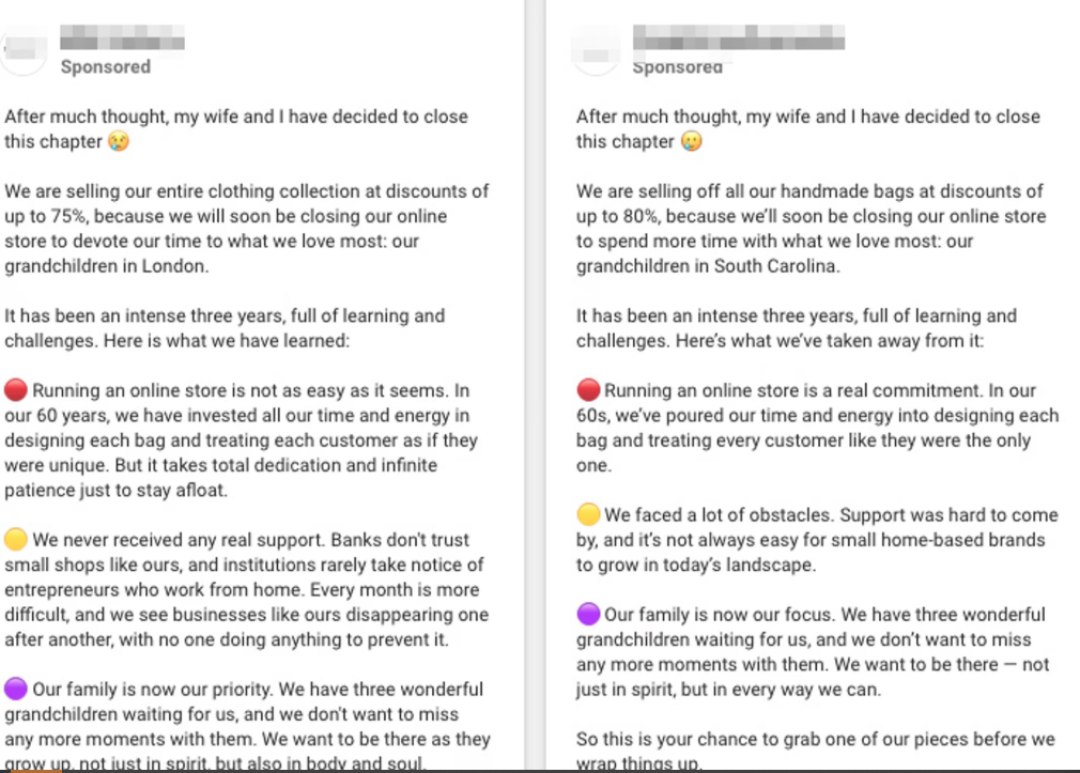
"Sadly, we are closing... everything must go." This familiar hook is at the heart of a new wave of online scams appearing on Facebook and Instagram.
At first glance, these ads look like genuine clearance sales, but they're often a fraudulent scheme designed to separate shoppers from their money. This article will show you how to spot a fake Facebook ad and protect yourself from Instagram fake clearance sales.
This Facebook scam typically begins with an emotional story: a boutique that can’t compete with larger retailers, or a family business forced to shut its doors. Shoppers are told this is their last chance to grab deeply discounted stock before it’s gone forever.
The ads often feature:
Some accounts even include fake business addresses or add a city name (like “London Styles” or “St. Louis Boutique”) to look authentic. In a few cases, profile pictures and “founder” bios are generated by AI. This is a classic example of an online shopping scam.

Fraud consultants describe these operations as “industrialised social engineering.” Scammers set up hundreds of accounts at once, run cheap targeted ads, and disappear as soon as complaints pile up.
When reviews turn negative, the accounts are either abandoned or renamed, and the cycle begins again. It’s a numbers game: scammers don’t need every ad to succeed, only enough to turn a profit before vanishing. This high-volume approach makes it difficult to track and report every fake online store.
If you see a Facebook or Instagram ad claiming a shop is closing down, pause before clicking “buy.” Warning signs that it might be a "closing down" ad scam include:
To protect yourself and others from a Facebook "sadly, we are closing" scam:
When searching online for more information or reporting a suspicious ad, use a variety of phrases to find the most relevant articles and resources. For example, if you're suspicious of a post, you might search for "how to spot a fake Facebook ad," or specifically for "Facebook 'sadly, we are closing' scam." You could also use broader terms like "online scams" or "Instagram fake clearance sale" to understand the wider context of this issue and report a Facebook scam ad.
And remember: the golden rule still applies—if it looks too good to be true, it probably is.
Scammers are exploiting Facebook ads to push fake “closing down” sales at scale. Stay skeptical, double-check sellers, and don’t let urgency tricks pressure you into a bad deal.
📱 For extra protection, download the ScamAdviser App to spot red flags before they spot you.